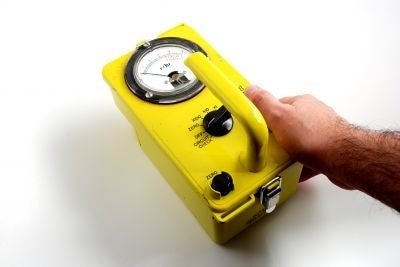Your support helps us to tell the story
From reproductive rights to climate change to Big Tech, The Independent is on the ground when the story is developing. Whether it's investigating the financials of Elon Musk's pro-Trump PAC or producing our latest documentary, 'The A Word', which shines a light on the American women fighting for reproductive rights, we know how important it is to parse out the facts from the messaging.
At such a critical moment in US history, we need reporters on the ground. Your donation allows us to keep sending journalists to speak to both sides of the story.
The Independent is trusted by Americans across the entire political spectrum. And unlike many other quality news outlets, we choose not to lock Americans out of our reporting and analysis with paywalls. We believe quality journalism should be available to everyone, paid for by those who can afford it.
Your support makes all the difference.The World Health Organisation said Wednesday that independent research on the health impact of radiation must be pursued without being influenced by the nuclear industry.
The WHO's remarks came after a first meeting between the UN health agency's chief, Margaret Chan, and Chernobyl protestors who have claimed the dangers of nuclear radiation were played down because of an allegedly dominant role played by the UN's International Atomic Energy Agency (IAEA).
Chan also pledged that the WHO would look into why the proceedings of a 2001 meeting on radiation and health involving experts from both UN agencies were not published.
"WHO agrees in principle that research should continue on the health effects of radiation and the research should not be influenced by industry," the Geneva-based agency added in a statement.
The health agency reiterated that its cooperation agreement with the IAEA did not stop it acting independently out of its overriding concern for public health.
However, it said it could not impose health safety standards in individual countries.
The group, "Independent WHO" has been campaigning doggedly to raise attention for people affected by the massive radiation leak after the nuclear accident at Chernobyl 25 years ago.
Two workers were killed in the explosion at the now Ukrainian nuclear plant on April 25, 1986, and 28 other rescuers and staff died of radiation exposure over the susbequent months.
While tens of thousands were evacuated, fears remain about the scale of the damage to human health, especially for more than half a million rescue workers, known as liquidators, who were sent to secure the power station and decontaminate the area.
The group says a large proportion of then have died or are seriously ill, and underlines that growing children are acutely vulnerable to radiation.
Concern about the safety of nuclear power has been heightened in many countries following the major radiation leak at the Fukushima Daiichi nuclear plant in Japan after it was hit by a massive earthquake and tsunami on MArch 11.
pac/cw

Join our commenting forum
Join thought-provoking conversations, follow other Independent readers and see their replies
Comments